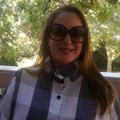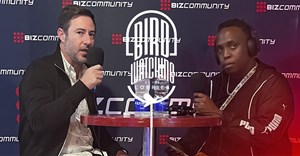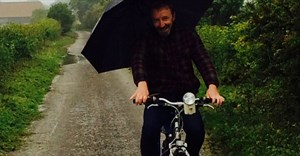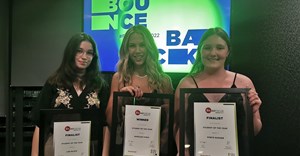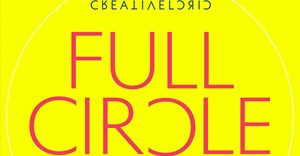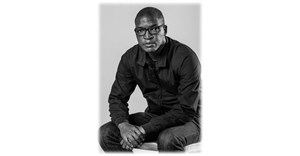
Here are the women - FCB's female dynamos tell it like it is
Earlier this year, FCB held its global leadership conference in Cape Town. I chatted to FCB Global CCO Susan Credle at the time, where she explained she had attended a conference in the US called ‘Where are the women’. While intentions at highlighting the diversity gap were there, she was so offended at the way it was addressed and felt like saying, “I’m right here, and in asking that question you’re saying I’m invisible, that I don’t matter.” So for her, the solution was to remove the W and rather say: “Here are all the women.”
Hence the ‘Here are the women’ panel at FCB’s conference. On stage to share their industry journey, and highlight what they believe women bring to the marketing mix, were Julie Rezek, president of HackerAgency in North America; Josephine Pan, managing director at FCB Shanghai; Joanna Monteiro, chief creative officer at FCB Brazil; Tina Manikas, president of FCB Red; and Swati Bhattacharya, chief creative officer at FCB Ulka; with SA’s own Suhana Gordhan, creative director at FCB Joburg and current Loeries chair, as the panel moderator.
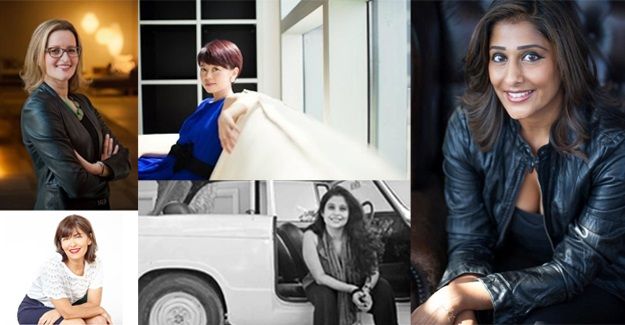
I caught up with all apart from Manikas for their views on the importance of diversity in ad agency life, whether it enhances the overall creative work and what other agencies can do to not just celebrate gender diversity, but also encourage more variety of age, culture and race in the industry said by many to be most in need of transformation…
 Talk us through the importance of diversity in ad agency life – how does it enhance the overall creative work?
Talk us through the importance of diversity in ad agency life – how does it enhance the overall creative work?
Monteiro: Diversity is essential in ad agencies, especially in the creative departments. Our main activity is communicating with a range of different people and we must speak and interpret things like all of these different people when creating brand communications.
Pan: An ad agency is fundamentally a people business, selling ideas to consumers. Consumers are a diverse group, therefore we – the ad agency – should also be diverse. Otherwise, how can we understand consumers? How can we generate culturally relevant and powerful ideas that resonate with a diverse market?
Bhattacharya: For me, intimacy is the true algorithm of creativity, and only a diverse environment makes it possible for me to step into other people’s shoes: To think like them, to live like them and to be like them. When your workday is a melting pot of peoples and cultures, your storytelling ability becomes more layered, more nuanced and richer. I believe there is no such thing as Chinese pain, Jewish love, Palestinian orgasm, Asian jealousy or African laughter. If we all feel the same things, well, we must be the same.
Rezek : Diversity of all kinds is important in an agency because every consumer is different and, as we represent and work on our clients’ brands, we need to share the different point of views. Diversity drives innovation. That’s the bottom line.
Gordhan: One of the reasons creative people get into advertising is because they are keen observers of humans. It’s our job to study all sorts of people and human behaviour so that we can capture those tiny slivers of light that reveal who we are, and that help us relate our human personalities to a brand’s personality. The more diverse our study of those humans, the more interesting the work we create will be. This is why it is important to ensure that the people we have in ad agencies are as different and unique as possible. The people we hire need to come from diverse backgrounds so that they can bring their own lived experiences to the table and represent our audiences out there. In our own South African context, the industry has looked and sounded the same for a long time. For a while it was a white, all-boys club. Diversity is now more crucial than ever, in order to change the advertising landscape and the way we talk to the people of South Africa.
 What are you most proud of personally, as a female working in this industry?
What are you most proud of personally, as a female working in this industry?
Monteiro: I’m proud to be a creative leader who listens more than she talks and who is more group-oriented and less intimidated. I honestly believe that this ensures that the talented people on the team have the space they need. This work environment, which is understanding of mistakes and celebrates victories, has a better chance of being creative.
Pan: I feel proud of being Josephine, being the very true me working at FCB, fully liberating my potential, not just as a female.
Bhattacharya: I am very proud of our sisterhood. And, I am very proud of my voice; not just that it is heard, but that it is celebrated. I have been working for the last 23 years and never have I needed a box of tissues while hearing presentations. Yet in Cape Town, I cried at least three times in four days.
I am proud that feelings are important in this organisation. That conversations are important in this organisation. That oestrogen is important in this organisation.
Rezek: Easy! 41 of the 100 attendees at our global summit in South Africa were women. I can say, that pales compared to what I’ve seen in other holding companies. There truly is a strong effort for diversity and inclusion at IPG. In my specific office, our workforce is split 50/50 female/male.
Gordhan: I’m at home at FCB. I am heard. I am free. I am supported. Opportunities are open and my achievements are celebrated. We have an accessible and open leadership, and transformation is at the heart of our belief system. The global network is so open and communicative, and having access to the likes of the women on this panel and our global chief creative officer, Susan Credle, makes me feel honoured and privileged. Furthermore, FCB Africa is 51% black-owned. Our black economic empowerment partner is The Maharishi Institute, a free university. Through this partnership, it is possible that 250 to 300 young women’s educations will be funded every year.
 Impressive. Expand on the specific points you shared during the ‘Here are the women’ panel discussion in Cape Town recently.
Impressive. Expand on the specific points you shared during the ‘Here are the women’ panel discussion in Cape Town recently.
Monteiro: Action. One must be fair and brave to create opportunities for people, whom the leaders, deep down, already know have the potential to be excellent at their jobs. One must recognise new skills that can be game changers for the company. And, as I have mentioned earlier, one must be brave.
Pan: I’ve found out one truth in most of the cases for Chinese women. It’s not opportunities that do not go to them. Quite the opposite – they refuse the opportunities in their professional area. The highly regarded success as a woman in China is finding a good man to marry, to rely on. Career is just a decoration to their life, something they can sacrifice anytime. I think FCB, as an agency, needs to really take the lead in encouraging women to understand that beyond man or woman, they are individuals.
Self-actualisation is the ultimate goal of a human being’s life. It’s easy to say, but not easy to do. The journey of self-actualisation of a woman is much harder than that of a man in China. Because as human beings, everyone has the desire to conquer, to win, to lead, to stand on the top of the hill, meanwhile as a Chinese woman, she inevitably has the instinct to follow, caused by the cultural influence. These two natures are conflicting with each other. And to be a brave woman, you always need to challenge yourself, keep going, and accomplish your own journey of self-actualisation.
Bhattacharya: I spoke about my chance collision with Susan Credle while judging the Clios, and how that changed my life. I spoke about how assertion is more important than aggression. Other than that, I have no memory of what I said: I only remember how I felt when I got off the stage and people came to hug me.
Rezek: First, if you remember nothing else in the workplace, what is important is “equal pay, equal opportunity with a big call to action on never making assumptions on behalf of women”. For example, just because a woman had a baby three months ago, don’t assume she doesn’t want the job that will require her to travel from time to time. I’ve seen that mistaken assumption a lot. Second, we are human first and must remember every person, every woman is her unique self with her own stories and experiences, her own innate traits and learned traits. We also can’t lump and generalise based on gender or demographic.
Gordhan: I moderated the panel discussion, and in my introduction, I spoke about the importance of creating access for women to participate, to converse, to share and to sit next to senior, more experienced women in the industry. What was most profound for me was not only that my seat was next to Susan Credle – whom I look up to and am always inspired by – for the duration of the conference, but also that I was invited to conduct this panel discussion by Credle herself. This was a great example for me of creating access and face time with incredible women in leadership.
 What can other agencies do to not just celebrate gender diversity but also encourage more variety of age/culture/race?
What can other agencies do to not just celebrate gender diversity but also encourage more variety of age/culture/race?
Monteiro: There are some initiatives in Brazil, but they are few and far between. It’s important to ensure equal pay and equal opportunities from the moment people are hired.
Pan: Believe in our hearts, no matter how different we are in age, race, culture, we are all the passengers on the earth, we have the same hope and love for our life in this world. And because of the difference between us, our life can be so colourfully weaved together, this world can be painted with more and more colours. Cultural exchange is the first priority in action.
Bhattacharya: For some agencies, “cleverness” is the most important thing in the world, and they can sacrifice anything at the Altar of Clever. But that’s not true, nor is it right. People are just as precious as their ideas. Feelings are just as important as form, and a truly diverse agency is what will be a truly clever agency – if not today, then tomorrow.
Rezek: Recognise it, call it out, celebrate it.
Gordhan: Hire the right people. Since it’s a challenge to find the right people, we have to start earlier. Start at the grassroots level, offering up advertising as a viable career, spend time with students and build relationships with them from the time they enter advertising schools. In our agencies, we need to be super conscious of creating opportunity for women and people of colour. Most importantly, we need to continue to celebrate and shine a light on those women and those people of colour that are thriving, that are present, that are doing and being.
"Let's stop holding mirror up to what is wrong in present and shine a light on what we want for future". ���� @susancredle pic.twitter.com/jE2ZodMspp
— Robyn Ward (@rmward) January 18, 2017

About Leigh Andrews
Leigh Andrews AKA the #MilkshakeQueen, is former Editor-in-Chief: Marketing & Media at Bizcommunity.com, with a passion for issues of diversity, inclusion and equality, and of course, gourmet food and drinks! She can be reached on Twitter at @Leigh_Andrews.


